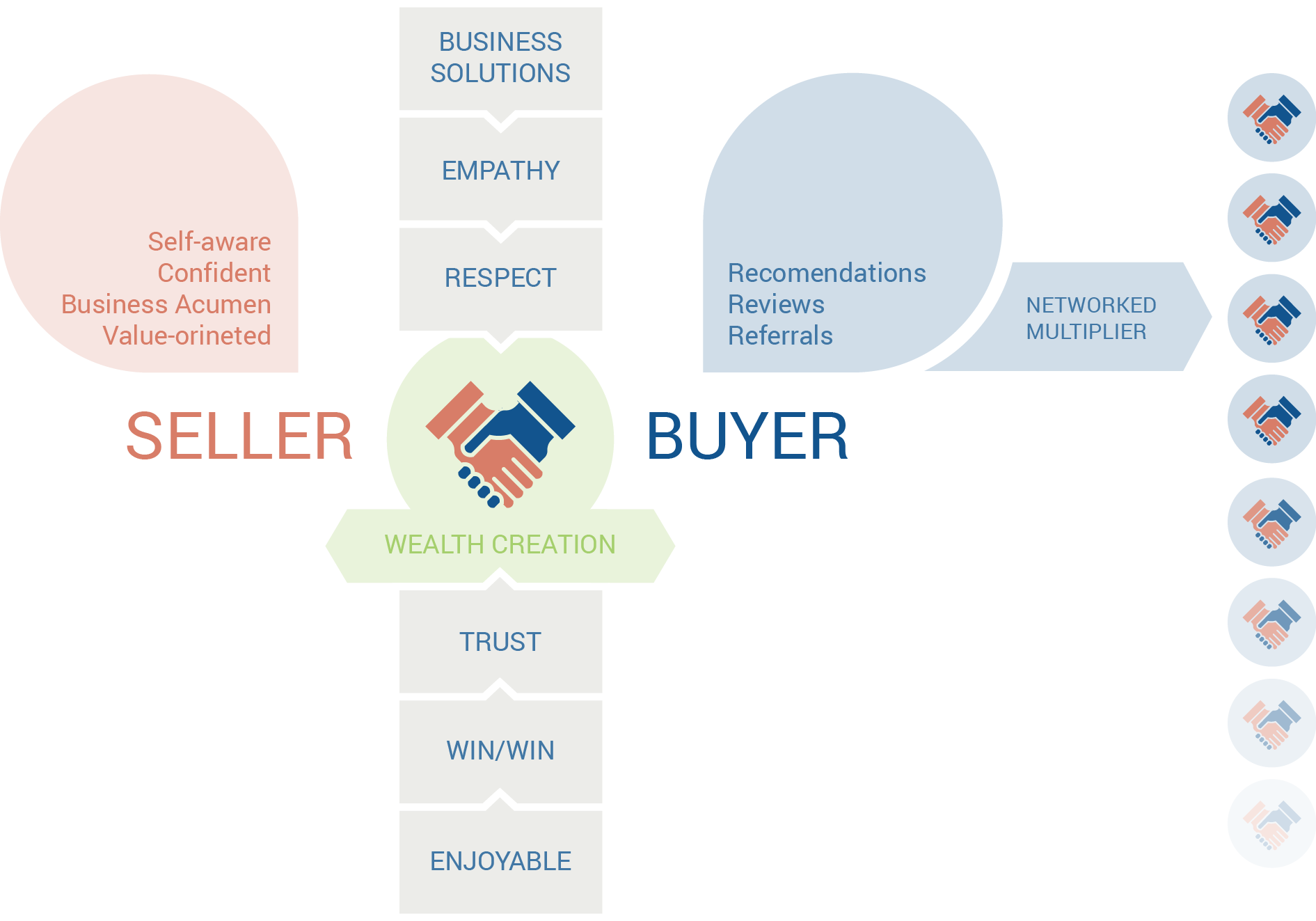With Pipeliner CRM, our main focus has never been to make it more possible to control salespeople (as seemed to be the mission of many CRM applications), but to empower them and, with every release, make it increasingly more possible for them to sell.
We do this because we actually believe in salespeople. We’re not only here to greatly boost the positive reputation of salespeople, but more importantly to boost their self-esteem, and help them to believe in themselves.
Reputation
Going back in time, salespeople have had a bit of an issue with their reputation. There was always a suspicion that a salesperson was going to try and take unfair advantage of a prospect, push something on them that they didn’t want or downright cheat them. To some extent this is still true today—salespeople are still regarded with a degree of mistrust.
The reasons for this lie in the fact that the dishonest actions of a few have tarnished the positive efforts of the many. There have been salespeople that were pushy, or provided inaccurate or only partial information about a product or service, just in the effort to bring in that sale.
It didn’t help that ill-intentioned companies used decent salespeople to push faulty products on unsuspecting customers. In such a case the salesperson wasn’t wholly to blame, and some of them didn’t even know.
At the same time, people have realized that the life of a salesperson is certainly not easy—witness the extreme popularity of Arthur Miller’s award-winning play Death of a Salesman, which opened in 1949 and is still being performed today. People knew it was a tough way to go.
The Internet and Transparency
Today, the honest salespeople—whom I believe are in the far majority—are winning out. Why? It’s much more difficult for dishonest salespeople to succeed today.
The broad proliferation of the internet has brought transparency to commerce and business. When a product is not worthy, word spreads almost instantly, and people will stop buying it. When a company is guilty of unfair practices, the world is going to know about it very quickly, and the company won’t be around for very much longer unless they change. Companies are now becoming wise to this, and many are changing their ways for the better.
The same is true of salespeople. If a salesperson is routinely cheating prospects and customers, a bad reputation is going to rather quickly extinguish that salesperson’s career.
For the same reason that dishonest salespeople aren’t succeeding today—transparency—the honest ones are succeeding. Their reputation precedes them. Through social media, reviews, and word of mouth, great salespeople become known as product experts and people that provide genuine help.
It can also be seen that one of the three of these things—a company, a product or a salesperson—being illicit or unfair can taint the other three. That’s because today, people tend to think of all three as a single unit. For that reason companies should manage, market and brand all three together—with a positive emphasis on all 3 as 1.
Network Selling
In an effort to assist the majority of salespeople—the honest ones—in today’s interconnected world, here is a graphic that we came up with to illustrate what we call today’s Network Selling.

As you can see, the elements the seller brings to the table are:
- Self-aware
- Confident
- Business Acumen
- Value-oriented
The buyer, on the other hand, brings:
- Recommendations
- Reviews
- Referrals
Additionally, the buyer acts as a networked multiplier—experiences good or bad are going to be passed along to friends and colleagues. As you can see, that seller is only going to succeed if that shared data reflects positively on the seller.
You can see in this graphic that the elements shared between the seller and the buyer are those things one which they both must firmly agree for the sale to be a total success and, more importantly, for further successes to follow:
- Business Solutions
- Empathy
- Respect
- Trust
- Win/Win
- Enjoyable
Of paramount importance is that second to the last item, “Win/Win.” In today’s networked selling environment, both the buyer and the seller have to win for sales to be a real success.
Seller-Buyer Transfer of Knowledge
We read today that a big part of the change in today’s sales landscape is that of the buyer—that 60 – 80% of a buyer’s decision is made before ever contacting a salesperson, and therefore a salesperson is no longer responsible for any transfer of knowledge to the buyer.
I strongly disagree with this assessment. Given the components in the Network Selling graphic above, the inherent knowledge that a salesperson brings to the table can never be replaced, even by computer algorithms. This is especially true in B2B sales.
At that moment when knowledge is involved, a buyer can’t make fully informed decisions—this process of knowledge transfer is needed, and is more important than ever.
Pipeliner CRM
So how does Pipeliner CRM fit into all of this?
We have developed Pipeliner from the very beginning from the perspective of the salesperson who is honest, self-responsible, and who is not to be controlled like a machine. We believe that the majority of salespeople are honest and are out to do right by prospects and customers.
We believe people can be self-responsible. It oftentimes happens that the system (as with legacy CRM applications) robs them of their responsibility and attempts to make them into machines, so they can be controlled, manipulated and pushed.
We believe that self-responsible salespeople are capable of thinking logically. For that reason we have developed Pipeliner to be totally visual in all of its features—it allows salespeople and sales managers to instantly grasp sales opportunities and statuses, and act on them.
Unlike many CRM developers of the past, we didn’t develop Pipeliner to better control salespeople, but to liberate them. Pipeliner makes it far more possible for salespeople to see how they’re progressing, and for sales managers to accurately coach and mentor them.
In days past a sales manager had a lot of figures in front of him showing a salesperson’s performance, that the salesperson was not privy to. Hence the sales manager was giving the salesperson instructions or orders, and the salesperson had no idea why.
Today, both the sales manager and the salesperson have the same data regarding the salesperson. I believe that both the sales manager and the salesperson will make correct decisions if they have accurate data in front of them.
I’ve said repeatedly that the world can be changed through sales. Well, if we are to change the world through salespeople, it will only be through self-responsible salespeople, never machines.
Pipeliner is the only CRM solution based in such sound principles—not simply and only on a list of features we think salespeople and sales managers need. Get your free trial of Pipeliner CRM now.




















